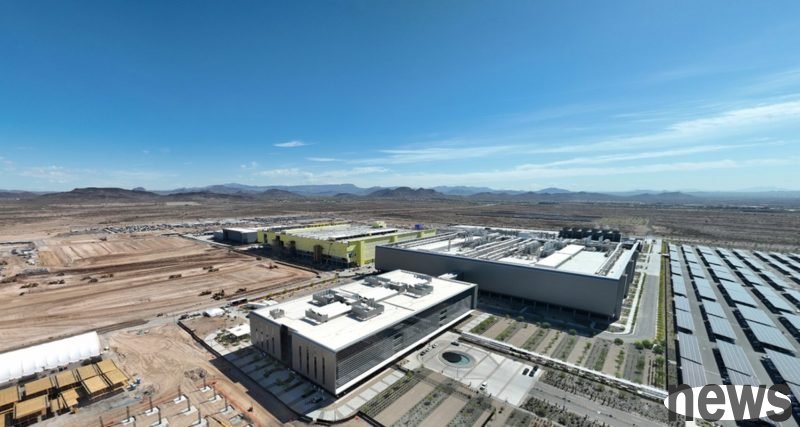
According to foreign media reports, the crystal foundry Longtou Taiwan Electric accelerates the construction of two new factories in Arizona, the United States, and completed several quarters ahead of the plan. The purpose is to start operations faster, which is of great significance because it can significantly narrow the gap between the US chip production technology and Taiwan from five years to three years.
According to Appleinsider, Taiwan's Taiwan Rotary Factory is already producing 2 nanometers, and the third factory in the United States estimates that it will only produce 2 nanometer chips by 2030, and it is now expected to be completed at a faster pace. Taiwan Electric Power Chairman Wei Zhejia said on the 17th that after completion, about 30% of the advanced chip production capacity of 2 nanometers and more will be established in Arizona and will establish an independent and leading semiconductor manufacturing cluster in the United States.
Taiwan Power said that the accelerated construction is to meet the needs of American customers for smartphones and AI computing chips. Apple is one of the largest chip customers of Telco and is likely to be the main source of demand. This accelerated construction has gradually implemented the iPhone's complete US manufacturing scenario, in line with President Trump's call for more manufacturing to return to the United States. However, iPhones made entirely in the United States still have barriers, such as the United States lacks local resources and educated powerhouses to install iPhones. Previously, Apple still had to rely on Taiwan's Taiwan factory to produce chips.
The accelerated construction of NTU is a background of a commitment of US$10 billion in investment in the United States within four years. Taiwan Power has invested $1.2 billion in initial investment in Arizona in 2020 and has received $6.6 billion in funding from the Biden administration's CHIPS Act. Market insiders believe that the chip bill is a success of the Biden administration and proves that manufacturing returns to the United States is feasible. Some people also mentioned that Trump's tax policy may have a positive impact, accelerating the cooperation between construction companies on behalf of government policies and enterprises to promote the manufacturing of local chips in the United States.
Although Telco's US investment has had a positive impact, some people said that the initial focus of the chip bill was to help American companies such as Intel, but some people suspected Intel and even thought Intel was no longer concerned. There are also some reversals, and Apple is about to end, which highlights the challenge of the United States promoting local chip manufacturing, while also facing the challenge of ensuring that American companies maintain competitiveness.
More chip production capacity is transferred to the United States, helping to reduce the dependence of a single region (especially Taiwan) and strengthening the reliability of global semiconductor supply chains. Some market people believe that it is wise to move the production line to North America and it is wise to leave China's potential threat. Some people believe that Taiwan may not want the US to produce the same manufacturing power as Taiwan in order to maintain the value of Taiwan's strategic buffer zone against Chinese aggression.